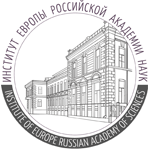institute of europe
the institute of europe of the russian academy of sciences
Jean Monnet seminar «Future of Europe: commitments in front of the young generation»
- 24 March 2017
On March 22-24, 2017, Boris Guseletov, Leading scientific associate of IE RAS, took part in Jean Monnet seminar «Future of Europe: commitments in front of the young generation» dedicated to the 60th anniversary of the Treaty of Rome. The event took place in the Italian capital.
The Treaty of Rome, which Belgium, Italy, Luxembourg, the Netherlands, France and Germany signed on March 25, 1957, laid foundation for the European Economic Community, which was later transformed into the European Union.
The seminar featured participation of 21 EU countries, including Austria, Great Britain, France, Germany, as well as 15 countries, which do not belong to the EU: China, Cuba, Russian Federation, USA, Turkey, Chile, Japan, etc. The participants of the seminar were selected on the competitive basis.
The opening ceremony featured speeches of Marlene Alvarez, Director of the European Commission Department of Strategic Communications as well as Pier Dastoli, President of the Italian Council of the European Movement. Anthony Gardner, former U.S. ambassador to the EU, held a special report during the round table discussion «Future of Europe». Ken Endo, professor of Hokkaido University, provided an interesting insight: he described the current conflict of the three principles of development: democracy, globalization and sovereignty.
On March 24, 2017, the seminar's participants worked in three groups: «How to reform the EU?», «The role of educating young generation for the future of United Europe», «Communicating Europe: how to persuade those who close up?». Boris Guseletov participated in the first group. The participants were later on invited to the meeting «Civil dialogue» for communication with honorable guests: Federica Mogherini, High Representative of the European Union for Foreign Affairs and Security Policy, and Joseph Muscat, prime minister of Malta. Such meetings with high EU officials take place on a regular basis. During the meeting in Rome, Mogherini and Muscat described the achievements of European integration throughout 60 years of its development. They also covered the main issues the EU is currently faced with, such as the influx of refugees, economic crisis, the rise of populism, etc. Both the audience and the Internet users had a chance to ask questions.
On March 25, Rome hosted the summit of 27 EU countries (without Great Britain). The EU's leaders signed the new Rome declaration and took obligations to strengthen Europe's unity and to jointly react at new challenges. In the afternoon, Italian opponents of the integration went on the streets to protest against the EU. Several thousand representatives of Italian organizations took part in the protests.



